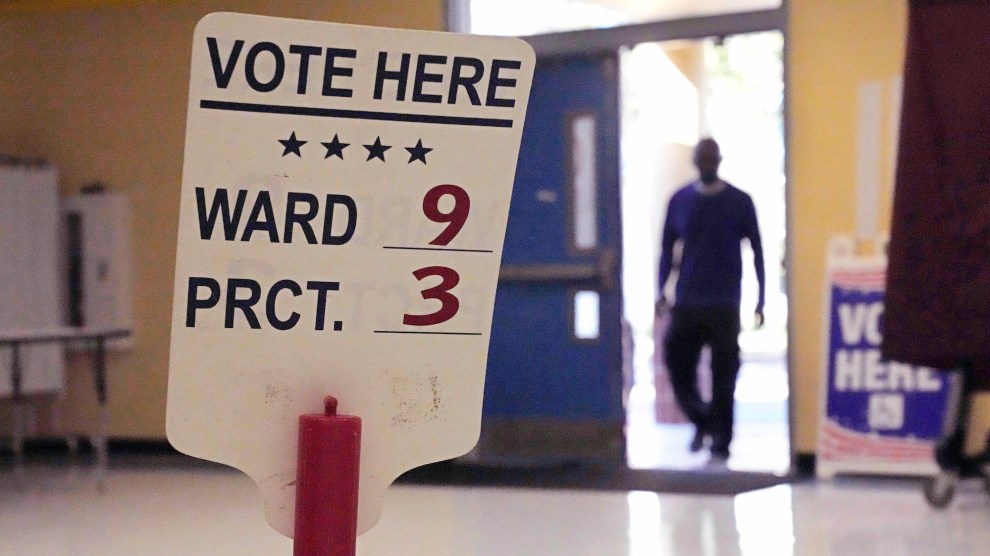Maybe Washington is embracing bipartisanship. Or maybe Barack Obama is too popular to be opposed.
At an “economic recovery working group” held Thursday for members of the House Republican Caucus, the top two Republicans in the House, Minority Leader John Boehner and Whip Eric Cantor, both thanked President-elect Obama for reaching out to them for ideas to add to the stimulus. “Much to his credit, the President-elect has made clear he wants input on this effort not just from members of his own party, but from the Republican Party and from all Americans,” said Boehner, sitting at the front of a large meeting room in the Cannon office building stuffed with congressmen, staff, guests, and members of the media. Mitt Romney, who delivered a short prepared statement, echoed their goodwill sentiments.
The rhetoric stood in stark contrast to the Republican opposition faced by former President Bill Clinton. Upon taking office in 1992, Clinton faced steadfast and united opposition from Republicans in Congress, one of several reasons why his presidency got off to a rocky start that included defeats on gays in the military and health care.
Unfortunately, there was little discussed at the working group that Obama could plausibly incorporate into a stimulus. (Not to mention the fact that the Republicans are running behind schedule: House Democrats plunged forward by unveiling a $825 billion stimulus bill on Thursday that is already being praised by environmentalists and transparency advocates.) Even though Obama has made clear he will use spending on public works to create jobs, Boehner said, “The more new spending we include in this legislation, the more likely it is that taxpayer money will be wasted.” Cantor’s opening statement included the first incantation of a mantra that would be repeated throughout the meeting: “The best way to invigorate a weak economy is to provide tax relief.”
The figures invited to speak were present for a single reason: telling the conservative lawmakers in attendance what they already believed. Like many hearings called and attended exclusively by one of the two parties, the event seemed to be an exercise in collective affirmation. Speakers were asked leading questions and gave exactly the answers lawmakers expected. Romney said “the best medicine for a sick economy is permanent tax relief.” He suggested eliminating taxes on savings for middle income Americans, which would include taxes on interest, dividends, and capital gains. Meg Whitman, the former CEO of eBay and a rumored gubernatorial candidate in California, said that the stimulus package should “avoid, in my opinion, at all costs, tax increases.” She advocated reducing corporate income taxes. She derided the infrastructure investment that is the cornerstone of Obama’s stimulus plan, noting that public works projects such as retrofitting a bridge or expanding a highway can take a long time to get up and running. “If they are not shovel ready, they are not stimulus ready,” she said.
Congressman Paul Ryan (R-WI) wondered if Obama should announce that he will ban tax increases in his first term. “Would that be a stimulus in itself?” he asked. Romney assured him it would. The “prospect” of tax increases, he said, creates a “chill on the market.” An economist from the conservative Heritage Foundation proposed cutting the corporate income tax by a third and cutting the tax rate on the richest Americans by the same amount.
But despite holding ideas that will find no place in the final version of Obama’s stimulus package, Republicans are unlikely to fight the bill too hard as it moves forward. The members at the working group today were all from the House of Representatives, where Republicans don’t have the votes to stop Pelosi and company. But there’s more than that at work. Republicans have been charmed by Obama’s demeanor and behavior during the transition, and are cowed by his popularity numbers, which hover near 70 percent. With the country overwhelming behind moving the stimulus plan quickly and overwhelmingly behind the President-elect, Republicans and their low-tax laissez faire economics will remain all cooped up.















